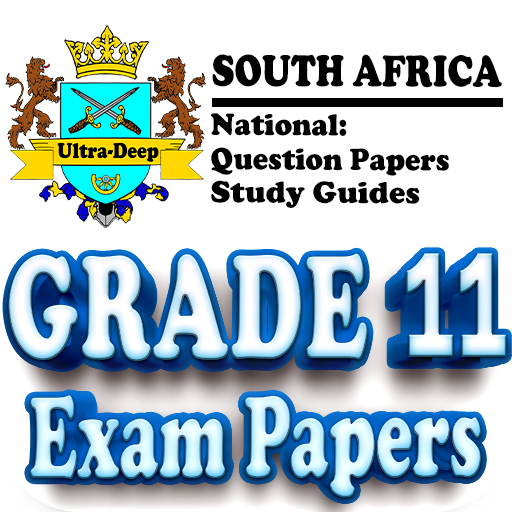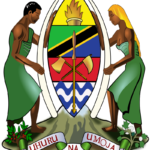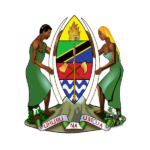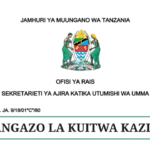If you’re aiming for strong performance in year-end exams, using past papers grade 11 is one of the most effective strategies.
Whether you’re in South Africa following the CAPS curriculum, preparing for A‑levels, or looking for IGCSE-equivalent work, access to earlier exam papers and memos provides unmatched revision benefits.
Why Practice with Past Papers is Crucial for Grade 11 Success
Past papers serve as an essential exam-prep resource for several reasons:
- Familiarity with Exam Format
You’ll see how questions are framed, what examiners typically emphasize, and common patterns in marking—making actual exam environments less intimidating. - Insight into Exam Expectations
Review mark schemes and memos to understand standards, depth of answers needed, and examiner terminology. - Effective Time Management
Simulating timed exam conditions helps improve pacing, ensuring you can complete the paper within the allocated time. - Identifying Knowledge Gaps
Tackling past questions reveals weaknesses in your knowledge—giving you specific areas to focus your revision. - Building Confidence
Success with past papers boosts confidence and reduces anxiety, helping you perform calmly on test day.
Where to Find Past Papers Grade 11
1. Official Government & Education Websites
For South African CAPS students, the Department of Basic Education (DBE) offers downloadable papers and memos for Grades 11 and 12 dating from 2015 to 2018, including maths and physical sciences papers (education.gov.za, testpapers.co.za).
2. Jerasp.org
A leading blog that gives information about Past papers grade 11 and results book for the exams
3. Testpapers.co.za
A leading repository offering 6,000+ Grade 11 exam papers and memos for over 25 subjects—from Mathematics to Dramatic Arts.
Papers available in both English and Afrikaans; includes 2024 Gauteng, KZN, and Eastern Cape exams.
4. SA-papers.co.za
Another extensive archive of Grade 11 CAPS-aligned papers—29 subjects across multiple languages, with 2021 and 2022 November papers.
5. Hlayiso.com
Access recent and older Grade 11 papers including Accounting, Civil Tech, Computer Applications, and more, updated as recently as January 2025.
6. Siyavula Free Past Papers
Offers verified past exam papers in Mathematics and Physical Sciences, aligned with CAPS curriculum, completely free.
7. Subject-Specific Sources
- StanmorePhysics provides Grade 11 Maths papers and memos from provinces like KZN and Gauteng, updated in January 2025.
- Ministry of Education in Guyana posts Grade 11 subject worksheets which can complement exam prep.
8. Mobile Apps
Apps such as “Grade 11 Past Papers and Guide” (Ultra‑Deep™) and iOS Grade 11 Exam Papers compile national and provincial papers and memos up to 2025. While convenient, some users report missing recent papers or technical issues.
Organizing Past Papers for Maximum Benefit
- Collect a Comprehensive Archive
Download multiple years and sessions per subject (e.g. May/June and Nov). - Schedule Regular Practice Sessions
Simulate exam conditions weekly. Include at least 30–60 minutes of review time afterwards. - Use Mark Schemes Thoughtfully
Study memos to understand expectations, then self-mark or grade peer work. - Analyse Trends & Patterns
Track regularly repeated question types—e.g., vector mechanics or essay questions. - Rotate Across Subjects
Balance high-stakes subjects (Maths, Sciences) with essay-heavy ones (History, Geography). - Review & Reflect
Maintain error logs. Reattempt tricky questions to test improvement.
Subject-Specific Past Paper Strategies
Mathematics & Mathematical Literacy
- Focus on problem-solving steps and formula applications.
- Practice under timed conditions. Use Siyavula and Department of Education sources for a variety of papers.
Physical Sciences (Physics & Chemistry)
- Alternate between Paper 1 (theory) and Paper 2 (practical/data questions).
- Pay particular attention to calculation formats and procedural notes .
Life Sciences (Biology)
- Integrate diagrams into answers. Define key terms precisely.
- Test understanding via repeated exposure to past questions from Testpapers or SA‑papers.
Languages (English, Afrikaans, Xhosa, etc.)
- Read past comprehension and essay questions to sharpen analytical and writing skills.
- Use SA-papers for dual-language preparation to compare phrasing.
Humanities & Social Sciences
- For subjects like History, Geography, and Business Studies, focus on essay planning and case-study responses.
- Compare memos to understand what constitutes a well-structured answer.
Technical & Vocational Subjects
- Practice real-world problem-solving tasks in Computer Applications, Engineering Graphics, Hospitality, Agriculture, and Tourism.
- Use Hlayiso or Testpapers to access niche subject papers.
Leveraging Apps and Digital Tools
Mobile apps provide convenience, but ensure you:
- Check for updates—many users report only older papers are available .
- Cross-reference online to supplement any missing papers.
- Use PDF downloads to study offline, avoiding data costs.
Crafting a Study Plan Incorporating Past Papers
| Week | Activity |
|---|---|
| 1 | Collect all available papers (2015–2024) for your main subjects. Organize by subject and year. |
| 2 | Begin with one timed Maths and one Sciences paper each week. Use memos to self-mark errors. |
| 3 | Add essay-based subjects (History, Geography) to your schedule. Write practice responses and compare against memos. |
| 4 | Review weak areas identified. Set mini-goals: e.g., mastering vector questions in Physics or essay structure in English. |
| 5 | Mix subjects further. Attempt full mock exams with 2–3 papers per day in exam conditions. |
| 6 | Evaluate progress: analyze scores, common mistakes, time management. Revisit error logs. |
| 7+ | Continue rotation and build until exam time, adjusting focus based on performance and upcoming syllabus coverage. |
Common Student Experiences with Past Papers
Reddit and student forums frequently highlight that success often comes from varied and repeated practice. While direct quotes are unavailable here, consensus exists that:
- Memorizing formats is not enough—you must understand underlying concepts.
- Regular marking against memos helps internalize examiner expectations.
- Timed practice reduces anxiety and builds confidence.
Beyond Past Papers: Final Revision Tips
- Use study guides and summaries (available via Testpapers or WCED e‑portal) to reinforce definitions, equations, and key theories.
- Create flashcards for formulas, vocabulary, and dates.
- Study collaboratively, explaining answers and debating interpretations.
- Take care of yourself: prioritize rest, nutrition, and exercise during prep.
Conclusion
Practicing past papers grade 11 is one of the most impactful study strategies. With thousands of papers and memos available online—across platforms like Jerasp, Testpapers, SA‑papers, Siyavula, and government portals—students hold a powerful advantage in exam prep.
By organizing papers, adopting timed practice, analyzing memos, and balancing subject focus, you’ll build knowledge, skill, and confidence.
Start early, stay consistent, and approach each paper with intent. Doing so will pave the way for academic success and readiness for Grade 12.
FAQs on Using Past Papers Grade 11
Q: How many past papers should I practice?
A: Aim for at least 8–10 per subject over the year—including different seasons and years.
Q: Should I only focus on recent papers?
A: No. Older papers help identify consistent question styles, while recent ones reflect current syllabus emphasis.
Q: What if I can’t find memos?
A: Peer study groups or subject teachers can help—try forums, WhatsApp study groups, or school libraries.
Q: How do I create effective mark schemes?
A: Use official memos from DBE, Siyavula, or Testpapers; break down answers into bullet-point criteria.
Q: Is practicing essays helpful?
A: Absolutely—regularly plan and write essays under timed conditions, then compare against memos to refine structure.







